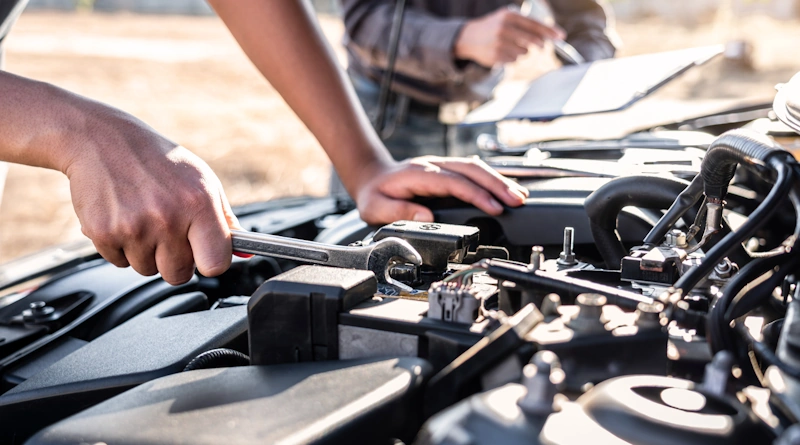Imagine you’re driving down the road, enjoying the breeze and the open road, when suddenly you feel a jolt, and your car completely stops. You try to start the engine, but it won’t budge. Your heart sinks as you realize your engine has locked up. This frustrating and potentially expensive situation can leave any driver feeling helpless. However, understanding the causes and knowing what to do when your engine locks up can save you from further damage and costly repairs. This article will explore the reasons behind an engine lock-up and provide practical steps to address the issue.
What Causes an Engine to Lock Up?
Lack of Lubrication: Insufficient lubrication is one of the most common causes of engine lock-up. Engine oil is crucial in reducing friction and heat between moving parts. If the oil level is low or contaminated, it cannot adequately lubricate the components, leading to increased friction and heat buildup. Over time, this can cause the engine to seize and lock up.
Overheating: When an engine overheats, it expands beyond its normal range. This excessive expansion can result in the pistons, rings, and other internal components seizing or becoming damaged, ultimately causing the engine to lock up. A malfunctioning cooling system, a faulty thermostat, or a coolant leak can cause overheating.
Timing Belt Failure: The timing belt synchronizes the engine’s camshaft and crankshaft. If the timing belt breaks or slips, the pistons and valves can collide, leading to severe internal engine damage and a lock-up. Regular maintenance and timely timing belt replacement are crucial to avoid such failures.
Hydrostatic Lock: Hydrostatic lock occurs when a significant amount of fluid, such as water or fuel, enters the engine’s combustion chamber. If you drive through deep water or have a leaking fuel injector, this can happen. The fluid does not compress like air, so when the piston tries to compress the fluid, it encounters resistance, causing severe stress on the engine components and potentially leading to a lock-up.
What to Do When Your Engine Locks Up?
Stay Calm and Ensure Safety: The first step is to remain calm and prioritize safety. If your engine locks up while driving, try to steer your vehicle to a safe location away from traffic. Activate your hazard lights and use caution.
Turn off the Engine: Once you’ve stopped the vehicle, turn off the engine immediately. Continuing to force the engine to run can worsen the damage and increase repair costs.
Check the Oil Level: Open the hood and check the oil level using the dipstick. Add oil to the recommended level if the oil level is significantly low. However, if you notice metal fragments or a burnt smell in the oil, it indicates a more severe issue, and adding oil may not solve the problem.
Allow the Engine to Cool: If your engine overheats before locking up, let it cool down completely. This can take several hours, so be patient and avoid attempting to restart the engine until it has cooled down.
Seek Professional Assistance: Engine lock-up is a complex issue that often requires the expertise of a qualified mechanic. Towing your vehicle to a trusted repair shop is the best action. The mechanic will diagnose the lock-up’s root cause, assess the damage’s extent, and provide you with the necessary repairs or replacements.
Preventive Measures: To minimize the risk of engine lock-up in the future, it’s essential to follow a regular maintenance schedule. This includes routine oil changes, coolant flushes, timing belt replacements, and cooling system inspections. Regularly checking for leaks and addressing them promptly can also help prevent hydrostatic locks.
Junk Your Car If Repair Costs Are Too High
Owning a car comes with its fair share of joys and responsibilities. However, when your vehicle reaches a point where the engine locks up and the repair costs are too high to justify, it might be time to consider selling your junk car. While parting ways with a beloved vehicle can be an emotional decision, there are several compelling reasons why selling your junk car with a locked-up engine is the right choice.
Repairing an engine that has locked up can be a costly endeavor. The expenses involved in diagnosing the issue, purchasing new parts, and labor costs can quickly add up, often surpassing the car’s actual value. By selling your junk car, you can free yourself from the financial burden of pouring money into a vehicle that may not be worth the investment.
Even with a locked-up engine, your junk car still holds value. Many components, such as tires, batteries, and various metal parts, can be salvaged and sold separately. Additionally, selling your car to a junkyard or a scrap metal buyer allows you to recoup some cash based on its weight and the market value of its salvageable parts. Instead of letting your locked-up car sit idle and deteriorate further, selling it allows you to extract some value from it.
Keeping a non-functional vehicle on your property can take up valuable space. It can be an eyesore and hinder your ability to use the space for more productive purposes. Moreover, neglected cars can leak fluids and contribute to environmental pollution. Selling your junk car ensures that it is correctly disposed of or recycled, reducing its environmental impact and freeing up space on your property.
Repairing a locked-up engine doesn’t guarantee a trouble-free future. Other mechanical issues may arise, and investing in an older vehicle with a history of problems can become a never-ending cycle of repairs. Selling your junk car allows you to move on from a vehicle that has reached the end of its useful life and avoid future repair costs and headaches.
Key Takeaways
Experiencing an engine lock-up can be distressing for any driver, but understanding the causes and steps to take can help mitigate the damage and reduce repair costs. Remember to stay calm, ensure safety, turn off the engine, check the oil level, allow the engine to cool, and seek professional assistance. Regular maintenance and preventive measures are crucial to minimize the risk of engine lock-up in the future. By staying proactive and addressing any issues promptly, you can keep your engine running smoothly and enjoy a trouble-free driving experience.
If your car’s engine is locked up and you’re done spending for repairs, maybe it’s time to get a quote from Junk Car Dog. Call us today, and we’ll ensure you get the best deal when you decide to junk your car.

